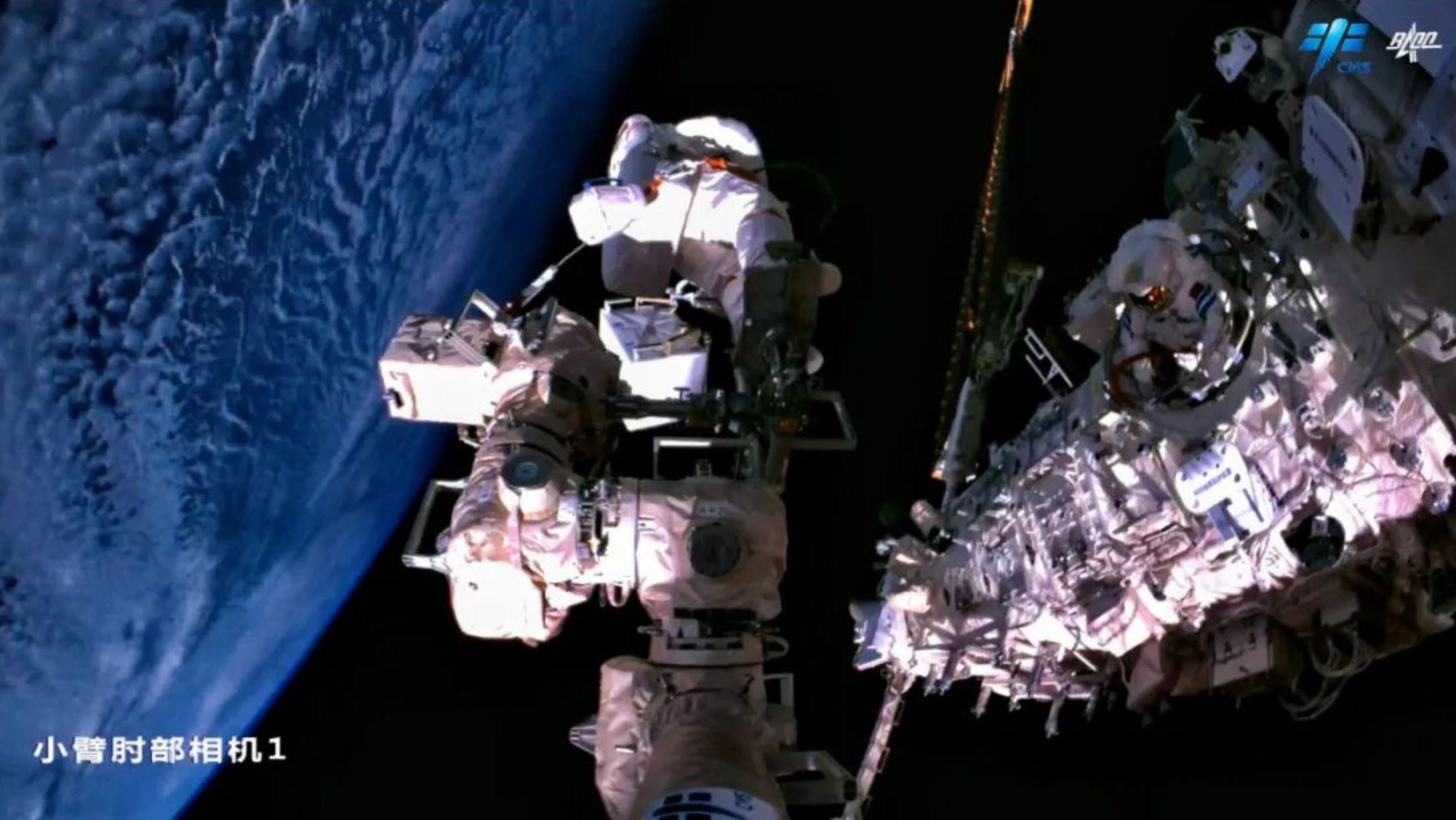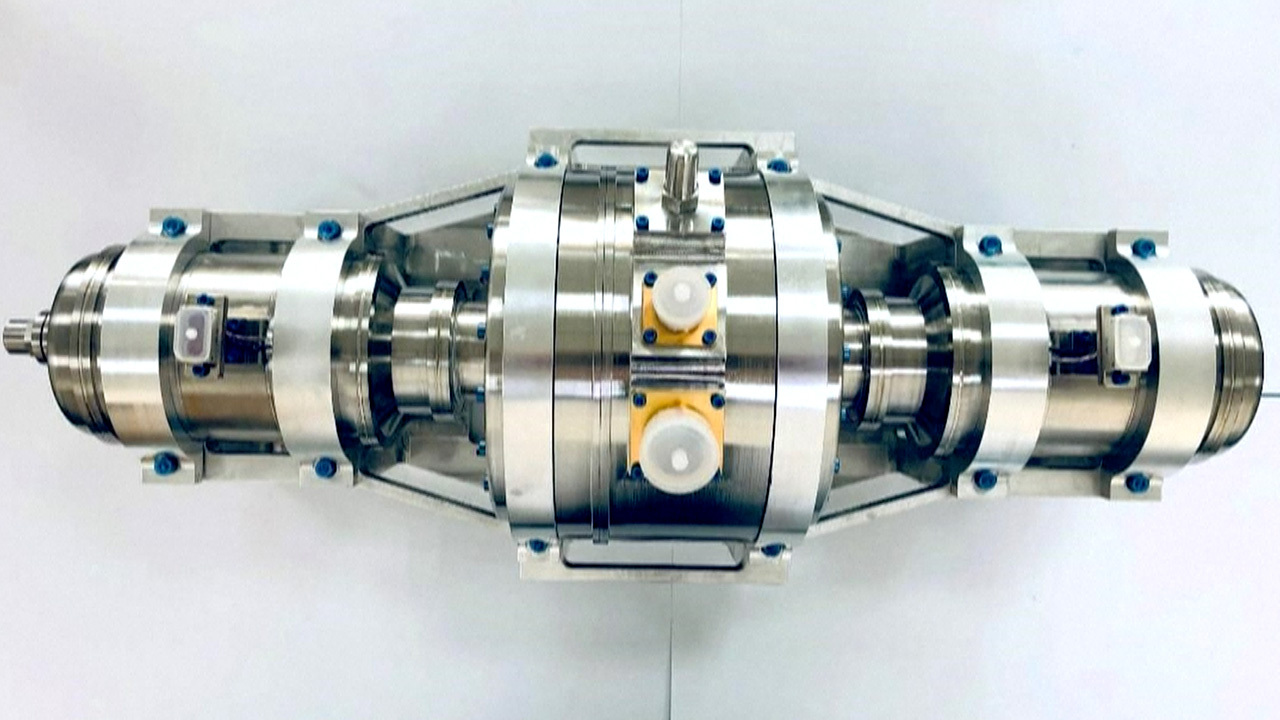
Astronauts aboard China's Tiangong space station have been testing out ways to convert heat into electrical power.
A Stirling power converter developed by the Lanzhou Institute of Physics of China Academy of Space Technology was installed in a specialized equipment cabinet for basic tests in the Mengtian lab module of Tiangong, according to CGTN.
The device was installed by the Shenzhou 15 astronauts currently working through their six-month-long stay aboard Tiangong. The thermoelectric converter performed in a stable manner throughout the entire test and produced better-than-expected performance indicators, according to the report.
Related: The latest news about China's space program

Free-piston Stirling thermoelectric converters are lightweight and can efficiently convert thermal energy into electric energy.
The technology has the potential to reduce a spacecraft's dependence on solar energy and could be useful for providing additional energy for future crewed, lunar and deep space exploration missions.
NASA has also investigated Stirling converters. The agency stated in 2020 that a converter at the Stirling Research Laboratory at NASA's Glenn Research Center in Ohio had been operating continuously for 14 years.
Mengtian was the final of three modules launched to complete the T-shaped Tiangong space station late last year. China is, however, considering expanding the orbital outpost with further modules.
Follow us on Twitter @Spacedotcom and on Facebook.







